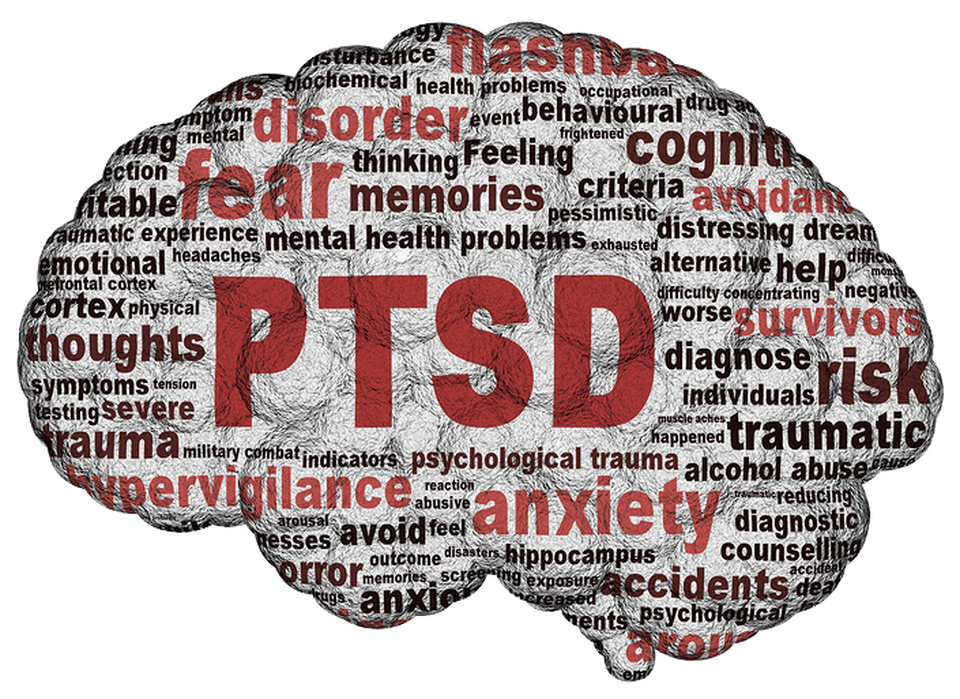
The many faces of Trauma: The many strategies in building coping skills for trauma triggers. Not ONE solution fits all!
Trauma can have a profound and lasting impact on an individual’s mental, emotional, and physical well-being. When a person experiences trauma, their brain and body often react in ways that can be triggered long after the initial event. These triggers can bring back painful memories, emotions, and sensations, making it difficult to navigate daily life. Developing effective coping skills is essential for managing these triggers and fostering long-term healing and resilience.
The information provided below explores strategies to build coping skills for various types of trauma triggers, offering a comprehensive guide to regaining control and finding peace. First and foremost, let’s decipher what these triggers can be and how to be self-aware.
Understanding Trauma Triggers
Trauma triggers are stimuli that remind an individual of a past traumatic event. These triggers can be anything from a specific smell, sound, or sight to more abstract things like a certain time of year or a particular feeling. When someone encounters a trigger, their body may respond with a fight, flight, or freeze reaction, causing intense emotional and physical distress.
Triggers can be categorized into different types:
- Sensory Triggers: These are triggered by sensory input, such as smells, sounds, or sights that remind the individual of the trauma.
- Emotional Triggers: These occur when an emotion, such as fear or sadness, reminds the person of how they felt during the traumatic event.
- Environmental Triggers: These involve specific places, situations, or social settings that are reminiscent of the trauma.
- Cognitive Triggers: These involve thoughts, memories, or flashbacks that directly relate to the traumatic experience.
Given the wide range of triggers, it’s crucial to develop coping strategies that address the specific needs of each type.
Strategies for Building Coping Skills
1. Grounding Techniques
Grounding techniques are strategies that help anchor you to the present moment, making it easier to manage the overwhelming emotions that come with trauma triggers. Here are some effective grounding exercises:
- 5-4-3-2-1 Technique: This technique involves focusing on your senses to bring yourself back to the present. Identify five things you can see, four things you can feel, three things you can hear, two things you can smell, and one thing you can taste.
- Deep Breathing: Practice slow, deep breaths to calm your nervous system. Breathe in for a count of four, hold for four, and exhale for four. Repeat this until you feel more centered.
- Touching Objects: Carry a small object with you, like a smooth stone or a piece of fabric. When triggered, focus on how it feels in your hand to distract from the trigger.
2. Mindfulness and Meditation
Mindfulness involves being fully present in the moment and observing your thoughts and feelings without judgment. Meditation can help reinforce mindfulness by training your brain to stay focused and calm.
- Body Scan Meditation: This meditation involves paying attention to different parts of your body, starting from your toes and moving up to your head, noticing any tension or discomfort.
- Mindful Breathing: Focus on your breath, paying attention to the sensation of air entering and leaving your body. This can help reduce anxiety and bring your attention away from the trigger.
- Observing Thoughts: When a traumatic memory or thought arises, practice observing it as if you’re watching it on a screen. Acknowledge it, but let it pass without getting caught up in it.
3. Cognitive Behavioral Techniques
Cognitive Behavioral Therapy (CBT) focuses on changing the thought patterns that contribute to distress. These techniques can be adapted to help cope with trauma triggers:
- Thought Stopping: When a distressing thought enters your mind, mentally say “stop” and redirect your focus to something positive or neutral.
- Cognitive Restructuring: Challenge negative thoughts associated with the trauma. For example, if you’re triggered by a situation that makes you feel powerless, remind yourself of your strengths and abilities.
- Journaling: Writing down your thoughts and feelings can help you process and understand them better. Journaling about your triggers can also help you identify patterns and develop strategies to manage them.
4. Self-Soothing Techniques
Self-soothing involves using your senses to comfort yourself and reduce distress. These techniques are particularly helpful when dealing with sensory and emotional triggers:
- Aromatherapy: Use calming scents like lavender or chamomile to help relax your mind and body.
- Music Therapy: Create a playlist of songs that help you feel safe and grounded. Listening to music can distract you from triggers and improve your mood.
- Warm Baths: The sensation of warm water can be soothing and help you relax when you’re feeling overwhelmed.
5. Physical Activity
Exercise is a powerful tool for managing trauma triggers. Physical activity helps release tension, reduce stress, and improve overall mental health.
- Walking or Running: Engaging in regular walking or running can help clear your mind and release endorphins, the body’s natural stress relievers.
- Yoga: Yoga combines physical movement with mindfulness and breath control, making it an excellent practice for managing triggers. Poses like child’s pose or savasana can be particularly calming.
- Dance or Movement Therapy: Expressing yourself through movement can help release emotions that are difficult to articulate, reducing the impact of triggers.
6. Building a Support System
Having a strong support network is crucial for managing trauma triggers. Surround yourself with people who understand your experiences and can offer comfort and advice.
- Talk to Someone You Trust: When you feel triggered, reach out to a friend, family member, or therapist who can provide support.
- Join Support Groups: Participating in support groups, either in-person or online, can help you connect with others who have experienced similar trauma. Sharing your experiences and coping strategies can be incredibly validating and empowering.
- Create a Crisis Plan: Work with your support network to create a crisis plan for moments when you feel overwhelmed. This plan might include people to call, places to go, and steps to take to help you stay safe and grounded.
7. Professional Help
While self-help strategies are invaluable, professional help is often necessary for deeply rooted trauma. Therapists trained in trauma-focused therapies can provide tailored support and guidance.
- Eye Movement Desensitization and Reprocessing (EMDR): EMDR is a therapeutic technique that helps process and reduce the intensity of traumatic memories and their associated triggers.
- Trauma-Focused Cognitive Behavioral Therapy (TF-CBT): TF-CBT combines elements of CBT with a focus on the trauma, helping individuals reframe their thoughts and manage their triggers more effectively.
- Somatic Experiencing: This therapy focuses on the body’s responses to trauma, helping individuals release stored tension and reduce the impact of triggers.
8. Lifestyle Adjustments
Certain lifestyle changes can help reduce the frequency and intensity of trauma triggers, contributing to overall well-being.
- Establish a Routine: Having a consistent daily routine can create a sense of stability and predictability, reducing anxiety and helping you manage triggers.
- Sleep Hygiene: Prioritize good sleep habits, as sleep deprivation can make it harder to cope with triggers. Establish a relaxing bedtime routine and aim for 7-9 hours of sleep each night.
- Healthy Eating: A balanced diet supports mental health and can help stabilize your mood. Incorporate whole foods, such as fruits, vegetables, and lean proteins, into your meals.
9. Creative Expression
Creative outlets can provide a healthy way to process trauma and manage triggers. Engaging in art, writing, or other forms of creative expression can help release pent-up emotions and foster healing.
- Art Therapy: Drawing, painting, or sculpting can help you express emotions that may be difficult to put into words. This can be particularly helpful for those who struggle to articulate their trauma verbally.
- Writing and Poetry: Journaling, writing stories, or composing poetry can be a therapeutic way to explore your thoughts and feelings. Putting your experiences into words can help you gain perspective and process your trauma.
- Music and Singing: Playing an instrument, singing, or even just listening to music can be a powerful way to cope with triggers. Music has the ability to soothe, uplift, and provide an emotional release.
Building these coping skills is a journey of self-discovery, patience, and resilience. By incorporating a combination of grounding techniques, mindfulness, cognitive strategies, physical activity, and creative expression, individuals can learn to manage their triggers and reduce their impact. It’s important to remember that seeking professional help and building a strong support system are also key components of healing.
Trauma may leave lasting scars, but with the right coping strategies, it’s possible to regain control, find peace, and build a life filled with hope and resilience. Healing is a gradual process, but with consistent effort and self-compassion, you can move forward and thrive.

dr.dan
Related Posts
Complexities of S.A.D (Seasonal Affective Disorders): Coping with mood disorders related to winters and cold temperatures. Effective Strategies that can work during these long winter months to alleviate these moods.
Seasonal Affective Disorder (SAD) is a type of mood disorder that recurs...
Are you in the right MOOD to eat healthy FOOD? How can mental health affect your eating habits in the positive or negative way: Is the fast food industry subliminal messages affect our moods and how can we fight back? Psychological warfare explained!
Psychological warfare entails the strategic deployment of propaganda and...
The Psychological Impact of Trump-Era Immigration Policies: Fear, Uncertainty, and the Future of Immigration Laws
The Trump administration implemented some of the most stringent...
The many faces of anxiety: Does the latter affect more than just the brain? Is it just mental or the physical gets affected? Let’s tackle each spectrum.
Anxiety is a complex condition that impacts more than just the brain, with...




